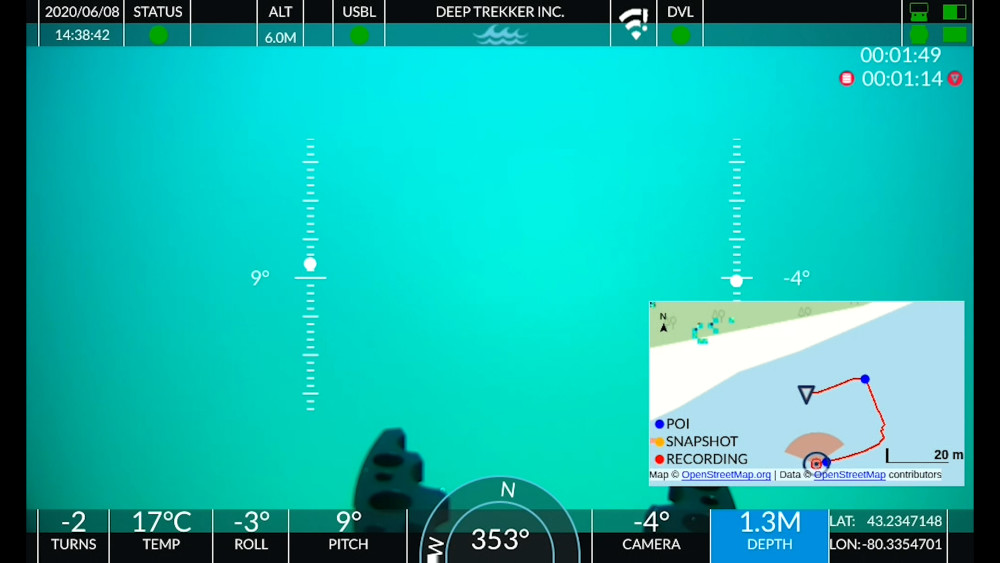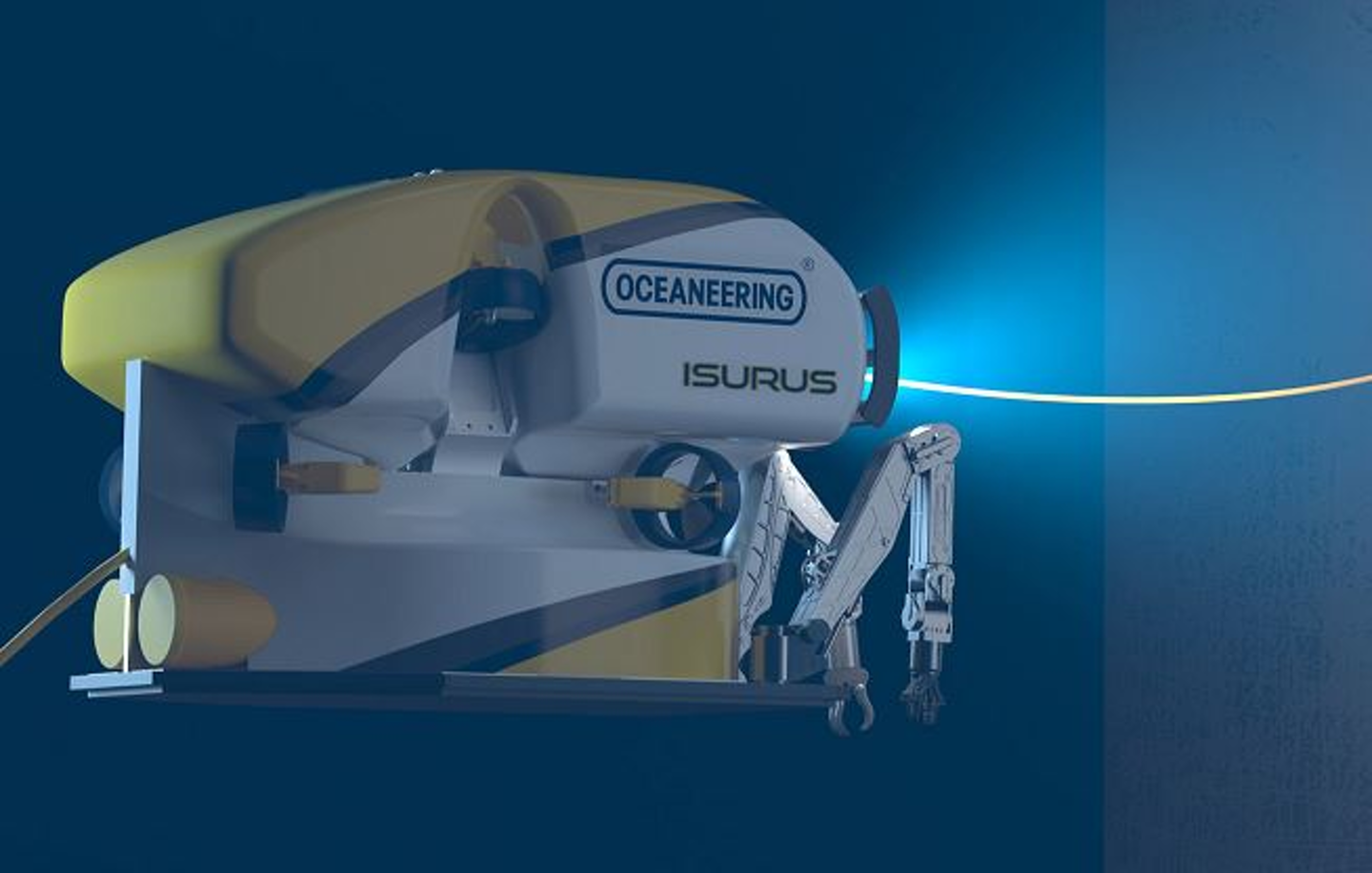Home › Forums › ROV › ROV Rookie Corner › ROV training, a question to the experts
- This topic has 12 replies, 8 voices, and was last updated 15 years, 11 months ago by
Moe.
-
AuthorPosts
-
May 1, 2009 at 5:02 am #2427
Moe
ParticipantHello there,
I have been thinking about doing the ROV training with SubNet in the Philippines and then applying for jobs all over the world. I was introduced to this by some friends who read about it somewhere, so we can all say that I don’t know much about it. I have, however, read through the website and gathered as much information as possible, and I wanted to say that this kind of website is the ultimate guide for someone like me, and also it shows the level of professionalism that you guys have, since you are sharing specific information only for the sake of acknowledging other people of it, all thanks!
The question is, right now, will I be able to get a job? After reading the forum articles, some people are suggesting that there are pay cuts, hour cuts and everything negative. To me personally, I don’t mind working in any corner of this globe, as long as I can earn a reasonable living.
I have no technical knowledge of hydraulics or electronics, but I am 22 years-old and I am willing to work as much as possible anywhere.
What I am looking for here is your wealth of knowledge and wisdom, I mean is it going to work out? Are trainees being accepted in any companies? Are job opportunities available for trainees? Is the training worth it, since I have no knowledge of any of that stuff, and is the SubNet training a good one?
Please let me know…
Waiting for your valuable responses.
Thank you,
Moe
May 1, 2009 at 7:01 am #23209suby
ParticipantHey Moe,
Do yourself a favour, study either electrics/electronics or hydraulics first and then maybe give ROVing a bash.
A solid technical background goes along way.
Hope this helps.May 1, 2009 at 7:14 am #23210T-Boy
ParticipantSubys’ right.
Moe, you are only 22, go study.
Get yourself trained up on a discilpine of your choice, I suggest electronics.
Do a ‘normal’ job for a few years to build on the knowledge you have learned and gain experience, then and only then think about an offshore post.
Sadly, too many people are under the impression that having an ROV certificate from a training school grants you access to the wonderful world of Offshore life – WRONG.
May 1, 2009 at 7:31 am #23211Topdawg
ParticipantI don’t think they will let you enter the Subnet training course, because of your lack of technical background (they should anyway).
Follow the advise of Suby… Do a technical course.
Good luck!
TD
May 1, 2009 at 1:13 pm #23212Moe
ParticipantThanks to you Suby, T-Boy and topdawg, so the ROV training is useless? I was looking to start my career quickly in that field, but from what you are saying I will not be able to. So is there another way around this? Other than going to school for some time? Is there a specific course I can take. The school in the Philippines offers a 3-in-1 program that gives a little bit of a background on electronics, hydraulics and mechanics, would this be sufficient enough?
Once again folks, I appreciate your advice and I take it seriously,
Moe
May 1, 2009 at 1:35 pm #23213suby
ParticipantMoe, honestly there is no real short cut here, rather than do the Rov course, use that cash to study. Especially with the way things are at present, you dont want to be cutting corners. It will also give you something to fall back on if you get tired of offshore life.
May 1, 2009 at 4:27 pm #23214Ray Shields
ParticipantMoe,
see the reply I gave you to your post on the other thread, NO ROV couyrse will give you sufficient technical training to work on ROVs, these courses are meant to introduce people who already have a technical background to ROVs.
You need to get electrical/electronic/hydraulic qualifications or experience first.
May 2, 2009 at 2:56 am #23215deepseacon
ParticipantMoe you listed as Toronto as your location?
Check out the http://postsecondary.humber.ca/apprenticeship.htm
Apprenticeship Programs
•Electrician: Construction and Maintenance Apprenticeship
•Electrician: Industrial ApprenticeshipEither of the above courses will be suitable with on site experence.
Try and get a job as a labourer with an electrical contracting company industrial or commercial first then try go to college do it your self dont wait for an employer to pay.
Then try to move to Electrical trades assistant for a while as you get your papers companys will employ you as Apprentice trainee etc
After sometime around 3-4 years they will Employ you as an Electrican very usefull skill back ground.Also try Triton logging is a Candian company which uses ROV to cut logs underwater just try and get on as a crew member then work hard and try to get on the ROV crew.
If you get a Electricians license for Canada then you will always be able to work when there is shortage of offshore ROV work.
Going to Subic is a very Big Risk but nothing is impossible.
But look at going to Global Marine in the UK when you have some experence of a trade etc to do the course.There is no harm in Applying for trainee jobs over in the US and Canada but if you have limted monies dont waste it going to Subic or even think there extended course will help you not alot.
May 2, 2009 at 3:11 am #23216Moe
ParticipantDeepseacon thank you very much for the helpful information, I take your words very seriously.
I just wanted to know a few things, and these are, what is the electronics and hydraulic knowledge suppose to assist a technician with? I am only asking because I don’t know about the field very well.
Humber college is a great place, but the problem here is their courses take time, and that’s the only thing I don’t have right now.
The program in Subic appealed to me because the entire program with the electronics and hydraulics training takes 42 days, and that way I can have a certificate by the end of training and I can try to get a job, even if lowly paid in the beginning, but progressive in a way as the experience will pile up. Isn’t the entire purpose to pilot the ROV’s? Or is it to fix them?
The entire trade was recommended by someone who did it, but I lost contact with him, and he was a business student who turned to this field after he was fed up with school, and the last I heard from him was positive, and he was doing OK. As I am reading your recommendations, I am not sure what to think now.
So please, if you have any further details I would much appreciate it.
Thanks,
Moe
May 2, 2009 at 3:44 am #23217LNM
ParticipantUnfortunately flying the sub is only a very small part of the job, the fun bit if you like. The real work starts when it comes on deck to change tooling or for maintenance, or worst of all for a repair. then the system is on what is known as "down time" this is when the sub is on deck when it is supposed to be working and can be very costly for the ROV company. The boat and ROV system could be costing the client anything from 10k to 100k + dollars a day ! more if it is holding up production. this is the reason companies want technicians with EXPERIENCE not a month long introduction but years worked on similar equipment be it hydraulics or electronics so they can diagnose the fault and repair it NOW if not sooner and get back on the job. this is not really something that can be taught in 3 or 4 weeks or even months its something which takes years most apprenticeships are 4+ years and degree courses are usually a similar length. you may be lucky and get a start with a company but in a time when there are thousands of people with very strong technical backgrounds out of work because of companies going bust you dont really stand much chance im afraid.
As said go back to school or get an apprenticeship then in a few years if you are still interested you may look more appealing to an ROV company.May 2, 2009 at 9:18 am #23218Excableguy
ParticipantPlease see –
http://www.imca-int.com/documents/divisions/rov/docs/IMCAR002.pdf
Title is ;"Entry Level Requirements and Basic Introductory Course for Remotely Operated Vehicle Personnel"
Note it say "BASIC"
These are the guidelines that the industry take as a starting point.
Why would a company risk sending unqualified personnel out to work in a multi million dollar industry? Remember any fu## up that the unqualified makes reflects directly back on the company that employs them.
You are not listening to what people tell you. You have no chance unless you have proper qualifications!! and the ROV schools do not provide the required qualification.
May 3, 2009 at 11:05 am #23219Ray Shields
ParticipantI just wanted to know a few things, and these are, what is the electronics and hydraulic knowledge suppose to assist a technician with? I am only asking because I don’t know about the field very well.
The program in Subic appealed to me because the entire program with the electronics and hydraulics training takes 42 days, and that way I can have a certificate by the end of training and I can try to get a job. Isn’t the entire purpose to pilot the ROV’s? Or is it to fix them?
Moe,
Firstly, the flying of the ROV is a very small part of the job, the job is Pilot/TECHNICIAN. You must be able to repair and maintain the equipment as well.
The Subic bay, or any other ROV training course, will NOT give you enough technical knowledge to do this if you do not have any already. No matter what any training school tells you, having a piece of paper from them saying you are a Polit Tech 2 will NOT automatically get you a job. You must have a suitable technical background as well.
You do not seem to know much about ROVs, what makes you interested in getting a job with them? I suggest you read more on the Internet about ROVs to see what they are and what you need to know to operate and repair them.
May 4, 2009 at 7:07 pm #23220Moe
ParticipantThank you LN, Excableguy and rayshields for answering my questions and giving me such meaningful advise.
I totally agree with you on everything you said after you explained to me how the work being done requires a lot of experience and capabilites in these technical fields. I don’t think I will ever be able to have this kind of experience, because I am already pursuing a career in something totally different, academically.
This job was suggested to me by an old friend whom I lost contact with in more than a year now. He said that the opportunity was interesting and the wages were very good, but you have to be able to live at sea, which I personally don’t mind. Funny that he did not mention the technical experience and expertise required.
Your help here might have just saved me over $15000 and two months of my time in working on something that would have never worked for me. I appreciate everything you have done folks.
Regards,
Moe
-
AuthorPosts
- You must be logged in to reply to this topic.




